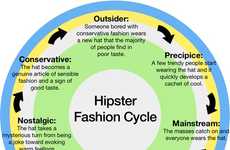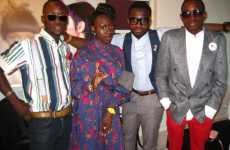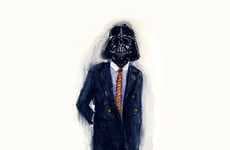



The too-cool-for-school tribe receives some major backlash
Implications - Hipsters have gone from being a hot subculture to one of the most hated mainstream youth cultures in less than two years, receiving tons of backlash from the blogosphere. This shift in attitude towards hipsters reveals the digital age’s influence on modern behavioral tribes and pop culture, in which the life span of popular groups, products and ideas are more short-lived than ever before.
Trend Themes
1. Backlash to Hipster Culture - The shift in attitude towards hipsters reveals the digital age's influence on modern behavioral tribes and pop culture, in which the life span of popular groups, products and ideas are more short-lived than ever before.
2. Hipster Fashion Fails - There is a market to mock and criticize hipster fashion choices, prompting entertainment opportunities for satirical content and products.
3. Hipster-mocking Commercials - Brands can capitalize on the popularity of mocking hipsters by releasing satirical content that resonates with audiences and drives increased brand engagement.
Industry Implications
1. Fashion Industry - The backlash to hipster culture indicates a fast-moving consumer market and trends that change quickly, creating opportunities for brands to capitalize on these temporary trends with collections that reflect the short-lived nature of popular fashion trends.
2. Entertainment Industry - The current perspective on hipster culture reflects a society that enjoys satirical and mock content, leading to entertainment opportunities in television, film, and social media that highlight the humor in certain subcultures.
3. Marketing and Advertising Industry - The popularity of hipster-mocking commercials reflects a society that responds well to humorous and ironic content, creating opportunities for businesses to create ad campaigns that resonate with audiences through satirical and witty messaging.
4 Featured, 33 Examples:
994,426 Total Clicks
Date Range:
May 10 — Jan 11
Trending:
Warm
Consumer Insight Topics:

































